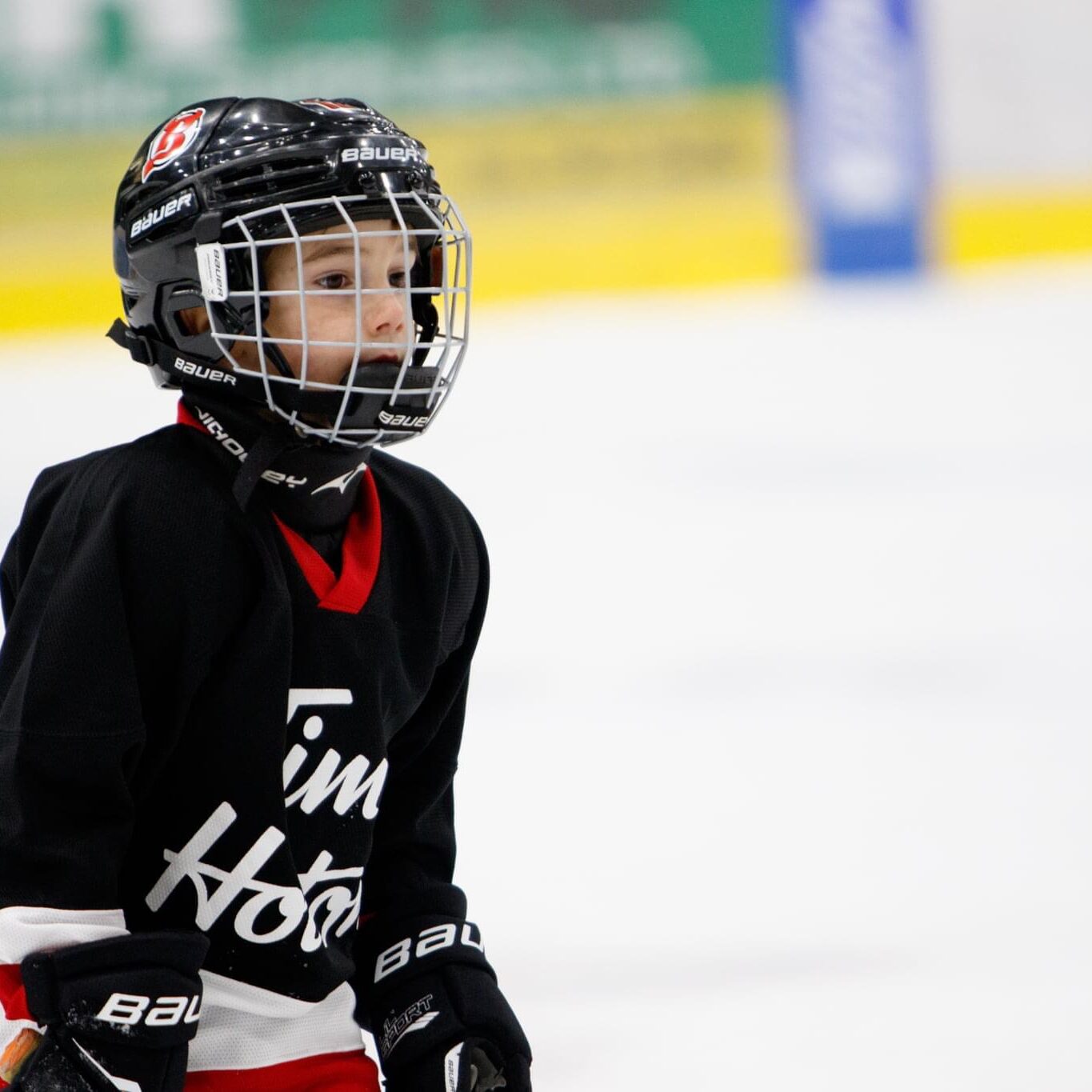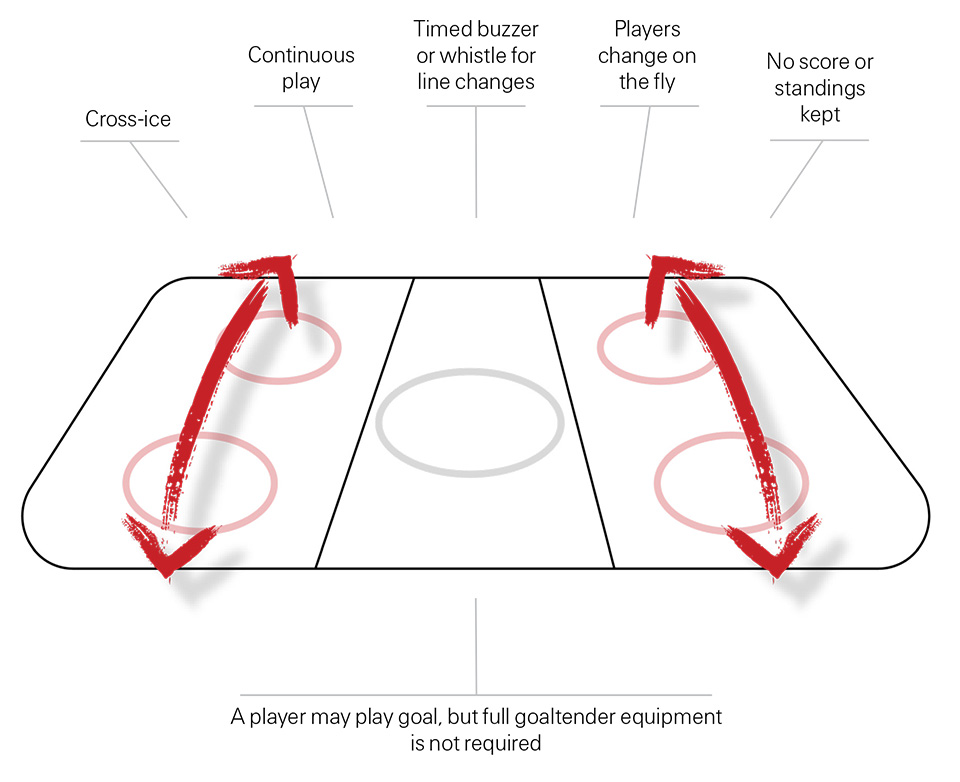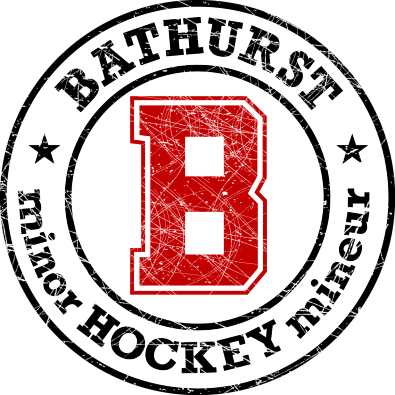U7 Minor Hockey
What is U7 Hockey?
The first years of hockey need to be a positive experience. A fun and exciting start gives young players the opportunity to enjoy hockey for life!
If a beginner has fun, develops basic skills and builds confidence, there is a better chance they will enjoy themselves.
U7 hockey will be delivered through a progressive, learn-to-play teaching curriculum for 4-5-6-year-olds. Children will participate in practice drills and skill sessions, as well as informal games like, freeze tag and obstacle courses.
The skills of skating, puck control, passing and shooting will be introduced and refined one step at a time. The focus will always be on fun and skill development, but the early years of hockey will also allow youngsters to experience fitness, fair play and cooperation. Your child will become a member of a team and learn the importance of teamwork and fair play.
To find our more on what is learned and practiced for this age group, know that BMHA follows Hockey Canada's Player Pathway for U7.

What equipment do they need?
Gear
Each child will receive a jersey and matching socks for their team which they will quickly learn to become proud of. It is the responsability of the parent to ensure their child has the proper equipment (including neckguards!)
Hockey Canada’s equipment fitting guide states that in order to ensure player safety, all hockey players must have the following equipment:
- Helmet (must be CSA-certified)
- Mouthguard
- Neck guard (must be BNQ-certified)
- Shoulder pads
- Elbow pads
- Gloves
- Groin guard (jock/jill/cup)
- Hockey pants
- Shin pads
- Hockey socks
- Skates
- Hockey stick
- Practice jersey
- Equipment bag
What can you expect?
Teams
You can expect your child to be a member on one of our (usually 3) U7 teams. They will form new friends and learn to work together while having fun. Teams are divided to provide even skill level between teams, facilitate travel for carpooling and a balanced number of players.
Season format
The season runs from October to March. There is usually one weekday practice as well as ice time on Saturday and Sunday. In December, games will begin taking some of those weekend spots. The schedule can be found here and on the TeamSnap app. Please check it regularly as it can change on short notice. Some teams and divisions also like to put together a group to communicate on social media apps.
Volunteering
Parents are encouraged to volunteer. We need coaches, assistant coaches, on-ice helpers, off-ice helpers, team managers and cheering! Parents will also be asked to operate the game clock for home games.
Costs
In addition to registration costs, which covers all the expenses related to the minor hockey season (ice rental, officials, etc.), there will likely be additional team-based costs. Participation in tournaments (up to 3 a year) is likely and team managers will ask that each player contribute their portion of the fee to register the team (approximately 30-40$ each).
Teams may also fundraise to cover some of these costs as well as for other events during the year (year end party, souvenirs). Managers are transparent with the amount of money spent and raised, and all money will be disbursed within the hockey season.
Respect in Sport
Each player requires a parent to have completed Respect in Sport Parent Program. It can accessed through Hockey New Brunswick's Respect in Sport Parent Program portal.
Anything else?
Benefits of Cross-Ice Hockey

There can be concerns from parents about how small-area games may impact their child’s hockey development, but parents should trust Hockey Canada and its research. Putting young players into a competitive environment too early will compromise their development; they need to be placed into competitive situations that suit their age-specific abilities.
This is why Hockey Canada’s Long-Term Player Development Model is so important. Dividing the playing surface is a decision that has been made in consultation with experts in athlete development. It is important to understand the benefits of cross-ice hockey and why Hockey Canada has a national policy ensuring all Timbits U7 hockey is played in smaller, modified spaces.
Benefits of Cross-Ice Hockey:
- 2X Puck Touches: Players are close to the play and can touch the puck more often, meaning opportunities to be engaged offensively are doubled.
- 6X Shot Attempts: Players are closer to the puck at all times and the puck is put towards the net much more often.
- 3X Shots on Goal: Players are much closer to the net, skate shorter distances and have increased opportunities to create offence.
- 2X Pass Attempts: Players pass and attempt to pass the puck more often – with and without the puck, they are closer to the game.
- 5X Passes Received: When passes are shorter (5 to 10 feet), accuracy improves and players have more success receiving the pass.
